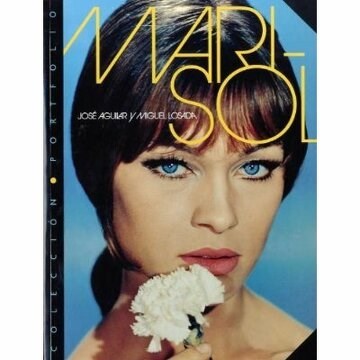The child prodigy of Spanish cinema.
Marisol (Pepa Flores) has been one of the most iconic actresses in Spanish cinema. At the tender age of eight, she was already performing with a dance group, where she was discovered by a producer who launched her to fame and the show business machine. The show business industry immediately identified her as a diamond in the rough and a cash cow.
At the age of eleven she was already the child prodigy of Spanish cinema. But no one imagined that behind the most iconic of smiles and those blue eyes hid a brutal life. Her long working days required her to teach English, ballet, speech, singing and acting, in addition to rehearsals, tours, premieres, interviews and generating millions of pesetas (former Spanish currency) in her films. She got a nose job and her hair lightened and, as she began to develop, she was forced to bind her breasts.
They did everything necessary to make her a big star. And they succeeded. In the 60’s Marisol was everywhere, on all the covers, in all the movies and on all the radio stations. But the cost was very high for such a little girl who lost control and direction of her own life.
There were numerous occasions when Marisol tried to break away from the child icon she had been to become Pepa Flores, a woman with higher cinematic goals. Finally, she managed to leave behind the regime’s child prodigy, took the course of her life and became an example of self-improvement and struggle. She began to be a political activist (which, as “the child of the regime” was frowned upon), but when she divorced her second husband, she dissociated herself from political life.
Both Marisol and Pepa Flores managed to captivate all those people who saw her fight against the ties that they wanted to put on her throughout her entire life.
RELEVANT DATA: José Aguilar is a writer and film journalist specializing in Spanish cinema, well known for his biographies and essays dedicated to great figures of Spanish cinema.
Miguel Losada, in addition to poetry and essays, is a film critic in the press and on radio and television, appearing on programs such as Noche de cine and Vivir de Cine. He is well known for his books on cinema.
AUDIOVISUAL POTENTIAL: TV Series, Miniseries, Film, TV Movie.
LANGUAGES AVAILABLE: Spanish.

Adquirir los derechos
Para ponerte en contacto con nosotros completa el siguiente formulario y te responderemos en breve.

